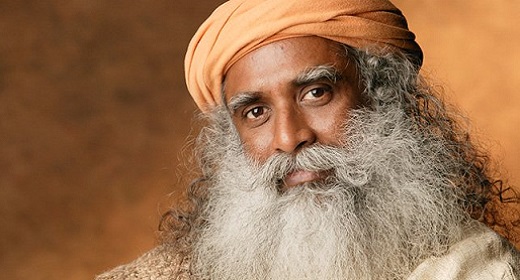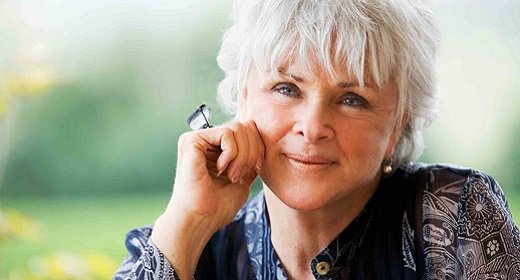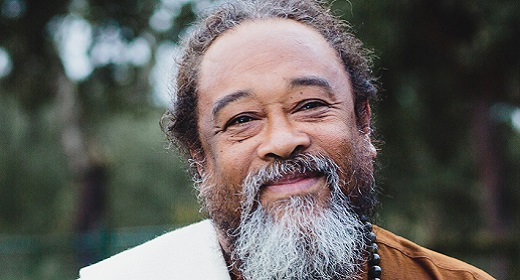by Ray Hemachandra: When someone I know is having a tough time…

in the middle of one of those dark nights of the soul and having trouble getting through it — I almost always think of Byron Katie.
I interviewed Katie soon after I moved to Asheville, North Carolina, between attending a publicity event — a talk and signing — Katie did at a bookstore in Asheville and then going to a training she did at a mind/body/spirit convention in Tampa, Florida.
What follows is my original article introduction that ran in the magazine Pure Inspiration (which no longer publishes) and then about half of the actual interview. I try not to post quite such extensive excerpts these days — because I do have the intent of collecting the interviews into a book sometime soon — but there’s a friend out there who may, I hope, find these teachings helpful right now.
And, anyway, I tend to think Katie’s ideas and approaches are helpful for just about everyone at just about any time.
Enjoy!
When you see Byron Katie in person and hear her speak, she shimmers. Katie seems ethereal — like someone not of this world. She also, not infrequently, comes across as something akin to insane by modern conventions. And then the turnaround happens: The longer you are in her presence, the more certain you become that there’s nothing you would rather share than Katie’s astonishing brand of insanity.
Does she walk her talk? Katie, which is the name she goes by whether a “Ms.” is attached or not, is pure walk. Question her thoughts? When she speaks, she’ll say something, immediately ask intuitively, “Do I know what I just thought — and said — is true?” and sometimes point out in her next sentence that she doesn’t know what she just said.
What she describes as inquiry is unceasing for her. It’s simply her basic mode of being.
The Work — the process of inquiry Katie teaches — has five steps. The first four steps are questions to ask about a stressful thought, and the last is a shift in perspective for inquirers to try out:
1. Is it true?
2. Can you absolutely know that it’s true?
3. How do you react when you think that thought?
4. Who would you be without the thought?
5. Turn the thought around.
Katie has taught The Work to hundreds of thousands of people through books, DVDs, workshops, and online videos and forums. Her six books include the best-selling Loving What Is: Four Questions That Can Change Your Life; I Need Your Love — Is That True?; and A Thousand Names for Joy: Living in Harmony With the Way Things Are.
You can learn more about Katie on her website www.thework.com.
Ray Hemachandra: At an event the other night at Malaprop’s Bookstore in Asheville, North Carolina, you said, “Joy is a natural way of being.” In A Thousand Names for Joy, you write, “Sadness isn’t a natural response.”
Katie, if joy is natural, why do so many people need a teacher to tell them they can live in it?
Byron Katie: Well, nobody needs a teacher, though most of us can use a little reminder now and then. Teacher is not a word I normally use. It implies that we all don’t teach equally, and that’s not true. Everyone has equal wisdom. It is absolutely equally distributed. No one is wiser than anyone else.
Ultimately, there’s no one who can teach you except yourself. Each of us needs to look at what our belief system really consists of.
Look at the concepts that come across your mind and just notice what you believe.
Ray: But why do so many people feel as if they are sad or suffering?
Katie: If your beliefs are stressful and you question them, you come to see that they aren’t true — whereas prior to questioning, you absolutely believe them.
How can you live in joy when you’re believing thoughts that bring on sadness, frustration, anger, alienation, and loneliness?
When you believe those thoughts, you think that the world is making you unhappy. But it’s your thoughts about the world that are making you unhappy.
Ray: Where do we go astray? How do we start down the path of living in thoughts and illusions rather than pure joy?
Katie: It’s like this, to take a simple example: Your mother says, “That’s a tree.”
And you’re a little kid. You don’t have a reference for it. For you, the whole world is one unseparated reality.
And then she says again, “Honey, it’s a tree.” You still don’t have a reference for it, but eventually you hear it enough times and from enough people that there is a moment when you believe it. And it’s separated out the moment you believe.
You actually see a tree.
What are you believing? It seems benign to think, “There’s a tree.” It seems to be a beautiful thought.
But the moment you believed that there was a tree, there was the thought I — there was a you believing that there was a tree. And in that same moment there was a mother teaching you, “There’s a tree.”
There was a whole world of separate things, rather than the reality of what is.
And, really, your mother didn’t teach you, “It’s a tree.”
You taught yourself, the moment you believed.
The world you live in is 100 percent your own responsibility. If you don’t like your world, it doesn’t work to say, “Well, it’s my mother’s fault. She taught me how to think.”
No. The moment you believed what she was saying was the moment your suffering began. And it’s not just “mother” — it’s everyone and everything around us.
It’s the dream — the dream world.
My mother became a believer, and then I became a believer. But when I was 43 years old, I began to think for myself, somehow, by fluke and by grace. And I thought, “Oh, my. I was so mistaken.”
The world isn’t what I believed it to be. I am not what I believed me to be, and neither is anyone.
So now I live in a state of grace, where I don’t have to know.
Ray: Tell me about the fluke and grace: Who were you when The Work was born, and who are you now?
Katie: Who I believed myself to be was a hopeless case.
I would wake up in the mornings, notice I was still breathing, and hate God for keeping me alive.
I would constantly think of killing myself, but I had three children, so that wasn’t a possibility.
I was clinically depressed. I was agoraphobic. I was full of rage, so paranoid that I slept with a gun under my pillow.
I would go for days and weeks at a time when I couldn’t even bathe or brush my teeth. My self-esteem was so low that I slept on the floor, because I didn’t believe I deserved a bed.
One morning, in 1986, as I lay asleep on the floor, a cockroach crawled over my foot.
And I opened my eyes out of this dead sleep — a 43-year-long sleep — and in place of all that darkness was a joy that I can’t describe.
No one had told me you could be alive and happy, and if someone had said that I wouldn’t have believed it. I thought you had to die — physically die — to escape.
In that moment I was absolutely unidentified, so I can’t say “I.” It was without identification. There was no time or space. There was nothing separate. All that was left was amazement and joy.
And whenever a thought — whenever any of the thoughts that had depressed me all those years, those terrifying thoughts that told me how worthless and terrible I was — hit my mind, I saw that it wasn’t true.
I began to laugh — or, without identification, we can say that it began to laugh. It just roared. I like to say it was born out of laughter.
The Work was born in that moment. I realized that when I believed my thoughts, I suffered, but when I didn’t believe my thoughts, I didn’t suffer.
And I’ve come to see that this is true for every human being.
So, the first two questions in The Work — “Is it true?” and “Can you absolutely know that it’s true?” — are what I saw when the thoughts appeared. No thoughts are true. They can’t be. I saw that with absolute clarity.
The third question is “How do you react when you believe that thought?” Well, that was obvious: sadness, anger, despair.
I saw that all these things are the effects of believing a thought that isn’t even true.
Then I saw that there was no identity until the thoughts appeared, so the fourth question is “Who would you be without the thought?”
Then what I call the turnaround, which is a way of experiencing the opposite of what you believe, occurred. I saw that for every thought, the opposite is just as true, or even truer. I realized that it was all upside down and backward — what was true, what was not true, what was the dream world, what was the real world.
Ray: For example —
Katie: — for example, I used to suffer from thoughts like “My husband should listen to me.” The turnaround was “My husband shouldn’t listen to me.”
How did I know that my now ex-husband shouldn’t listen to me? He didn’t. That was reality.
So, I had all four questions and the turnaround literally in a moment — in less than a moment. And when I talk about my world, people relate to it because it’s so familiar to them. It’s them. They’re hearing themselves.
Inviting people to inquiry is much more powerful to me than describing my experience. When people ask me, as you did, I try to describe it, because it’s all valuable. And when people hear me tell the story, they often say, “Oh my goodness, I get it. I get it!” But it’s not enough.
Asking the questions — actually writing down your stressful thoughts and putting them up against the four questions, then turning the thoughts around and finding genuine examples of how the turnarounds are true — that’s what changes lives. Every cell in your body is awake with inquiry. And you cannot believe the old thoughts again.
Every mind deserves to be free. When the mind is free, that’s the end of suffering.
Ray: When you describe your realization — the cockroach moment — it sounds almost revelational. Do most people doing inquiry have revelations like that, or is it usually steady work in making the understandings become second nature?
Katie: Steady work, and making the understandings become second nature — or first nature.
People don’t need sudden revelations. They get what they need when they need it, thought by thought by thought. It’s a constant thing when the mind starts to wake up to itself.
Mind is infinitely creative. And when it’s not stuck, oh my goodness, that’s where the joy comes from. Something happens, and the way we think about it, understand it, see it, is actually hilarious, whereas before it used to depress us.
It would be like saying, “He told me to go away.”
You can experience that in two ways: “He told me to go away” (Katie employs an aching, morose voice) or — and here’s how I would say it — “He told me to go away!” (Katie uses a bright, happy voice).
For me, if somebody tells me to go away, that is an opportunity: for me to give the person a better life, to realize where not to be, and to see what could be even better than being with that person I love.
So, the statements and concepts that used to depress me now bring me joy. That is not easily understood by people who believe what I used to believe.
Ray: What are some especially common stories and beliefs people realize they hold when they start doing The Work?
Katie: When I say, “People shouldn’t lie. Is it true? How many of you think that’s true?” everyone in a room of, let’s say, a thousand people will raise their hand.
Then I say, “Do people lie?” They all agree, “Yes, they do.”
Then I ask, “Is there anyone in this room who has never lied?” No one ever raises a hand.
So, reality is: Should people lie? Yes. How do I know they should? They all do.
This is not to condone lying. But realizing that people should lie when they do makes me a little more open-minded, a little more tolerant, when my child or my partner lies.
Then, turn it around: I shouldn’t lie. I’m the one I need to work with. I’m the one who changes the world if I can follow what I think should and shouldn’t be lived in this world.
There are amazing beliefs a lot of people hold, like “They don’t care about me”; “I should be more successful”; “I don’t have enough money”; “I’m too fat”; “They shouldn’t have done it”; “I’m not good enough” — the beliefs go on and on.
But when you begin to investigate these beliefs, the question “Is it true?” begins to live in you. It comes alive. It begins to rise as kind of a partner to all these stressful universal beliefs that people have been stuck in for centuries.
Also, the question “Who would I be without that thought?” begins to live, because you learn to identify stress with the concept that’s happening in the moment.
And when that happens — oh, my goodness — what a world!
In that moment, a state begins to happen that I call unceasing meditation. You cease to be body-identified. The mind becomes a joy to itself. It dances with itself. It sees that it is its only self.
It is its ultimate relationship and love and friend. It dances and sings, and the physical world cannot compete with that.
The nature of mind is that it loves everything once it loves itself, just as it opposes everything when it opposes itself.
Ray: Some people may struggle to disengage the intellect. How do you undo thinking without thinking? Is inquiry not thought engaging itself or deconstructing another thought?
Katie: Actually, it’s mind seeing through itself and understanding itself. I like to say that understanding is the power.
The most important relationship is the mind’s relationship with itself. In other words, the ultimate — and, really, the only — relationship you have is the relationship with your own thoughts.
As far as intellect, what else is there? Without intellect, there’s no story and no world.
If we are in silence — in absolute silence with no thoughts — for 10 minutes, it’s only a thought that tells us we were silent for 10 minutes. Our only proof is a thought.
Mind is everything. There’s nothing that it’s not.
If people are living their lives for security and comfort and pleasure, then mind’s every waking moment will be plotting those things. That’s how it stays identified — as a body, as a you.
The moment it begins to question itself, the mind becomes so clear that it starts working with itself rather than with the body’s identification.
Ray: At the talk you gave the other night, you explained how easily positive thinking can be turned around, because people are still basing their well-being on thoughts.
Affirmations like “I’m loveable, I’m loveable, I’m loveable” have something stronger running underneath: “I’m not loveable.” You feel better with positive thinking, you said, until you can’t make your mortgage payment, receive an unexpected bill, or get a parking ticket.
“Are you still loveable then?” you asked.
Katie: Yes.
Ray: So questioning your stressful thoughts — the process of inquiry — better supports joy than does trying to think joyful thoughts?
Katie: By questioning our stressful thoughts, we come to see that they’re not true. And if we see that our stressful thoughts aren’t true — if we have questioned them deeply and thoroughly enough — what does that leave?
It leaves love.
It leaves you completely in love with yourself and with a mind that can only project love onto everyone else, as well.
You can never make yourself believe that you’re loveable, however hard you try, because when the chips are down what you really believe rises to the surface of the mind to replace what you want to believe.
So, after years of “I am loveable, I am loveable,” when your husband lies to you or your mother is rude, the underlying thought “I’m unloveable” overrides all your positive affirmations.
What we really believe is what we manifest. What we believe, we see.
So, we cannot see what we don’t believe.
People talk about manifesting with positive affirmations. You can say, “I want a car, I want a car, I want a car,” but if the mind is running, “I don’t deserve it, I’ll never be able to afford it, I’ll never be a success” — if all those things are running — then that’s exactly what you’re really manifesting and what’s running your life. And as long as you believe those things, thinking positively — even though for some people it may be helpful at times — is not strong enough to override your negative beliefs.
If I want something, I go get it. Anything that I believe will stop me, I question.
And I might be wise enough in that questioning to appreciate what I already have. I think that’s the trick: wanting what you have, whether you get the car or not.
Really, I don’t know if that’s the trick or not. What I know is it’s a wonderful world when you have what you want at all times.
Ray: Some people might be troubled by your idea of fully accepting world conditions. Let me read a passage from A Thousand Names for Joy: “The apparent craziness of the world, like everything else, is a gift that we can use to set our minds free. Any stressful thought that you have about the planet, for example, shows you where you are stuck, where your energy is being exhausted in not fully meeting life as it is, without conditions.”
And then: “Until you can love what is — everything, including the apparent violence and craziness — you’re separate from the world, and you’ll see it as dangerous and frightening.”
So, war, genocide, poverty, hunger, environmental degradation — you love all parts of the world because you love what is.
Can lovers of what is still be agents of change, and how can they do so without the “should” — that something should be other than what is?
Katie: Let’s take the example of war.
If I have the thought, “They should stop fighting,” I can’t know that that’s true.
Who do I think I am, God? Who am I to say what’s right and what’s wrong? Who am I to say what is good for me or you or the planet in the long run?
When I turn the thought around, one turnaround is “I should stop fighting.” Is there any place in my life where I am making war? Am I fighting with my husband or my children or my parents? Every time I read the newspaper, am I fighting with the president in my head? Am I fighting with myself?
Let me work on that. That way war is ending somewhere in the world.
If I think the environment in the world needs to be cleaned up, let me clean up my own environment. Let me clean up the environment in my head — let me work with the pollution in that ecosystem. And that’s huge: just to clean up one ecosystem.
The power of one is magnificent.
Look at what Gandhi did. He was clear. Well, I don’t know if he was or not, but he was certainly clear enough for me. So, it’s obviously possible, when we see people in the world who we really love and respect, for them to affect our lives. And we want to know: How is it that people like Gandhi — really courageous, fearless people — are possible?
The power of one! If you can’t stop war in your life, how can you expect politicians to stop war in the world? You can’t.
And we all have equal wisdom, so if you can do it then you know that everyone can do it if their minds are open to answering just four simple questions and beginning there.
Ray: Here’s a personal sticking point: identification with my child’s well-being. If I get cancer, I can accept and love what is and even approach it joyfully, I think. But if my child gets sick — I have a son — I think I would find it much more difficult.
Katie: Ray, what makes you think that you could handle cancer any better than he could? How do you know that he couldn’t handle cancer at least as well as you could? If something happens to your son, your thoughts about not having him in your life are what your terror is about. It’s not about his life.
When your son is healthy and happy, you’re happy. And when you’re son is not healthy, you’re unhappy. But that doesn’t make sense.
When you question your thoughts about a time when your son is not healthy, you come to see that you’re the only one you’re worried about. It’s all about your happiness. You want him to be happy so that you can be happy. You want him to live for you.
It’s like this: If you’re okay with dying, your son could be at least as enlightened as that. If you’re okay with cancer, your son could be at least as enlightened as you are. And if your son is afraid to die, it’s because of what you’ve taught him. Some children are afraid to die because their parents are afraid to die. My own children have come to understand that it’s totally okay with me if they die. They don’t have to live for my sake.
What happens when you’re afraid for your child’s well-being? How do you react when you think the thought that something terrible could happen to your son and he’s out of your sight? How do you treat him when you think the thought that he’s not okay?
Look at that. You become frightened. You become overprotective. You begin to teach your child some very fearful things.
You don’t even realize you’re teaching them, because you try to hide your fear. You think you’re doing a good job of it. And yet your child picks up all your concepts.
Who would you be without your fear — without the fear of losing your son when he has cancer or he is dying? Who would you be without the thought “I need my son to be alive”?
You would be present with him, not missing one second, not one moment, of your lives together.
It’s just too valuable to take time out for your fearful thoughts about what would happen to you without him. It’s all about you, you, you. I invite everyone to question their thoughts about their children and allow their children to be free. That’s when we stop teaching our children fear.
Ray: Katie, what do you think the world looks like when everybody comes from a fearless place of pure love and joy — when everyone lives with that depth of understanding?
Katie: It’s amazing. We all begin to do what we can do — what you and I are doing now — to clean up the planet and to find solutions rather than fight. It just happens everywhere.
We begin to become human in a different way than what we’ve known before. We begin to be creative in a whole new way.
Right now our minds are confused with thousands of untrue beliefs. We act out of these beliefs, and our environment mirrors that confusion back to us.
We have the opportunity to — oh my goodness! — it’s unspeakable. All of us would be doing the most wonderful things, and we would never know who did them.
Like pollution right now — we never really know who’s doing it, although if we’re awake enough, we can know our own part. So, it would be like living the opposite of the pollution example, where all day long you do something that is a contribution and helpful, but you don’t ever get found out. No one knows it’s you.
You realize, “My life is a contribution.” Even breathing is a contribution.
Low self-esteem is not possible when you understand the nature of everything. Depression is not possible. The universe is absolutely friendly.
If everyone lived that way, it would end up with all of us living as our true nature.
Awaken Body
Awaken Mind
Awaken Spirit
Source: Ray Hemachandra








































